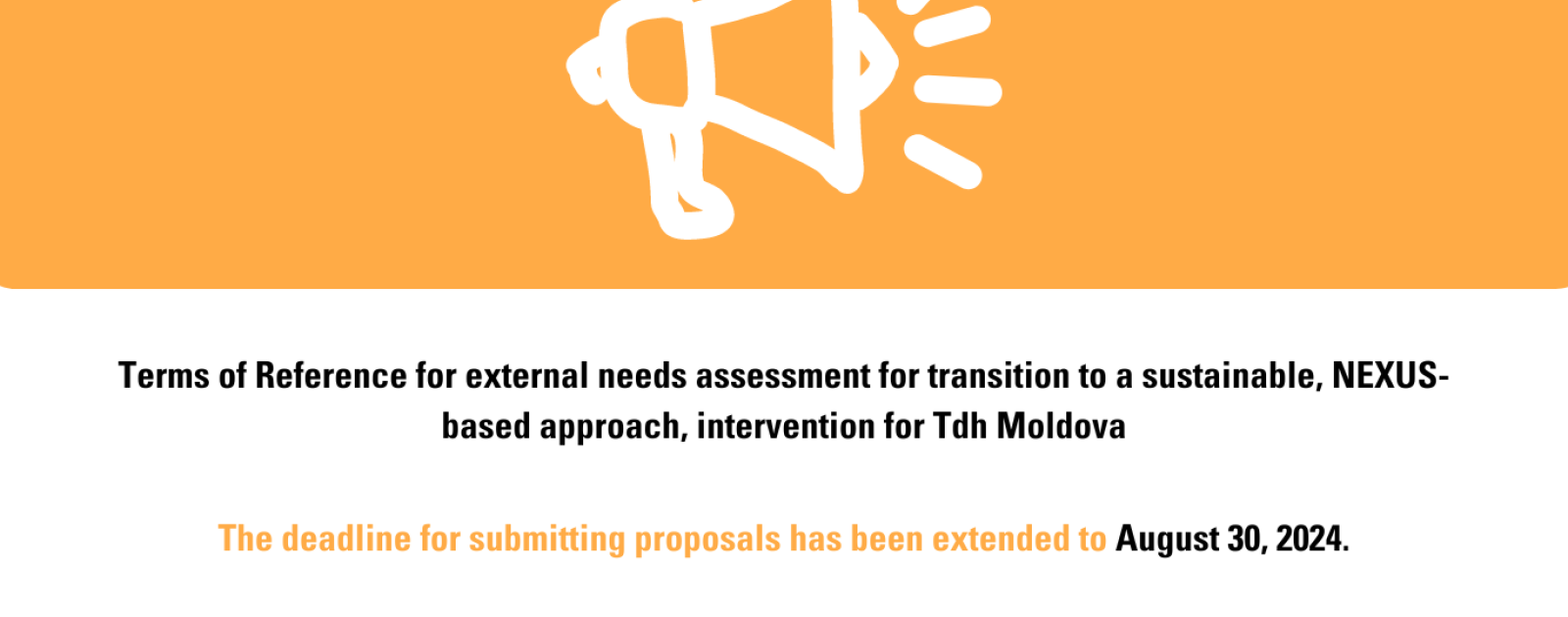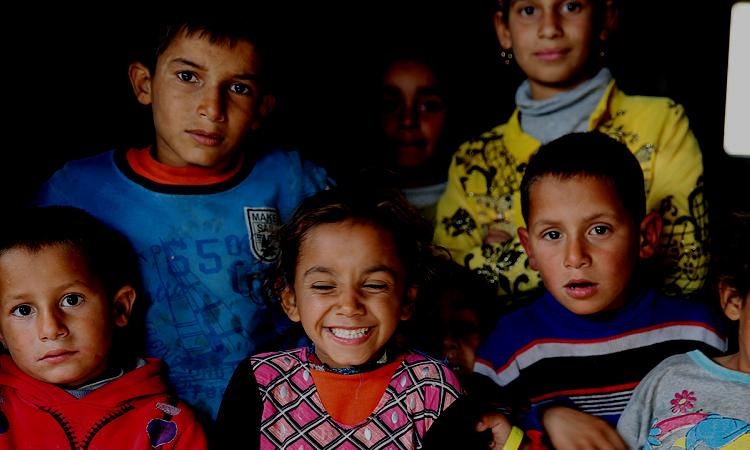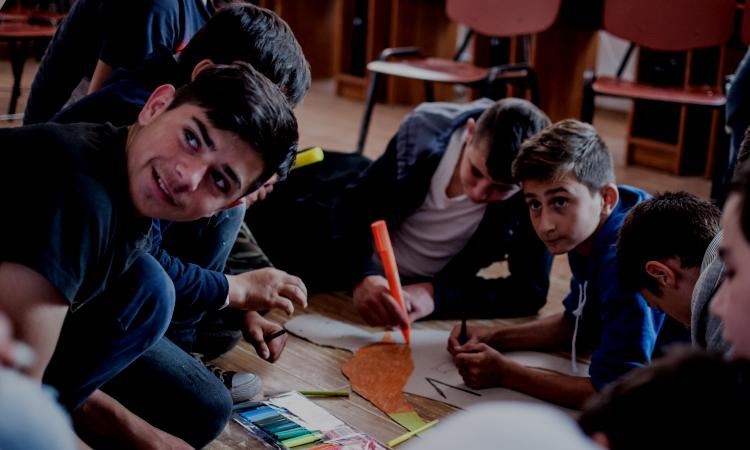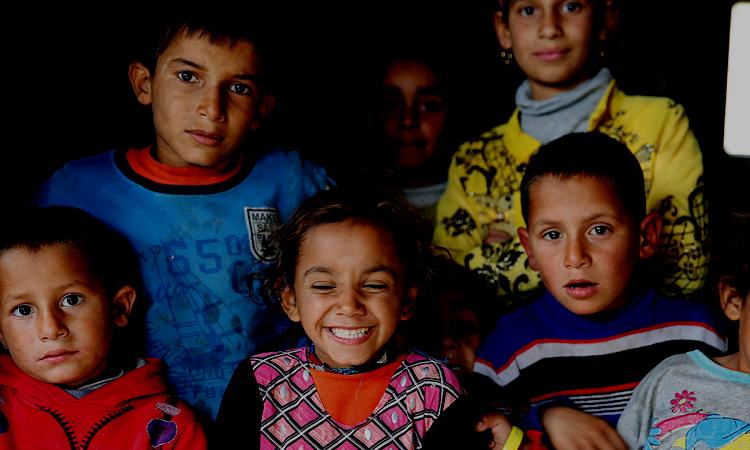
Type of contract: Services contract
Background:
Terre des hommes (Tdh) is the leading Swiss child relief agency. Founded in 1960, we are committed to improving the lives of millions of the world's most vulnerable children. Through our innovative protection and health projects, we provide assistance to over four million children and their families in more than thirty countries each year.
Working in Moldova since 2004, Terre des hommes Moldova (Tdh Moldova) is dedicated to ensuring the fulfilment of all children’s fundamental rights and to contributing to the improvement of the Moldovan child protection system. By means of its projects, Tdh Moldova aims for sustainable prevention of and response to violence, neglect and exploitation against children at the community, district and national levels. Tdh Moldova is geographically operating in the entire country. Currently, Tdh’s work in Moldova is built along three complementary axes – Child Protection Systems, Children Affected by Migration and Access to Justice, and seeks to develop synergies between them as well as with other key thematic areas of Terre des hommes Foundation.
Tdh Moldova has been at the forefront of humanitarian and development efforts in Moldova, focusing on the protection and well-being of children and their families. Since its establishment, Tdh Moldova has implemented numerous projects aimed at enhancing child protection systems, providing psychosocial support, and promoting social inclusion. These initiatives have been important in responding to the immediate needs of vulnerable populations, especially during times of crisis.
In response to recent emergencies, particularly the war in Ukraine, Tdh Moldova has provided immediate humanitarian support to refugees and host communities. These efforts included the establishment of Child Friendly Spaces, Mother and Baby Corners and mobile teams offering multi-disciplinary protection services, such as mental health and psychosocial support, information and referral, support in accessing available services for refugees, cash and voucher support, case management for meeting the basic need. The success of all these activities underscored the importance of flexible and adaptive responses in emergency contexts.
As the emergency phase stabilizes, Tdh Moldova is strategically shifting towards a Nexus approach. This approach integrates humanitarian aid with development and peacebuilding efforts to foster long-term resilience and sustainable development. The transition from direct service delivery to strengthening the national protection system is important to ensuring that the needs of vulnerable populations are met effectively and sustainably. This needs assessment will guide this strategic shift, ensuring interventions are informed by a comprehensive analysis of current needs and opportunities.
More information about the work of Terre des hommes Moldova may be obtained on our websites: www.tdh.md, www.tdh.org.
This assessment is conducted within the framework of the project "Strengthening support for war-affected children and youth in Moldova," funded by Swiss Solidarity. The project's objective is to provide sustainable support to Ukrainian refugees and vulnerable host communities through enhanced child protection and social support systems. The insights gained from this assessment will inform the strategic planning and implementation of activities aimed at improving resilience and social cohesion in the target communities.
The assessment aims to capture the current needs and challenges faced by children, youth, and their families, as well as to identify opportunities for integrating humanitarian aid with development and peacebuilding efforts. By understanding these needs, Tdh Moldova seeks to create a robust foundation for long-term support and to ensure that interventions are responsive and effective in promoting well-being and resilience among the affected populations.
Through this assessment, Tdh Moldova also aims to engage with key stakeholders, including local authorities, community members, and other non-governmental organizations, to foster collaboration and synergy in addressing the needs of refugees and host communities. The findings will guide the allocation of resources, the design of capacity-building initiatives, and the development of strategic partnerships to enhance the impact and sustainability of the project's interventions.
Objectives of the assessment:
- Conduct a thorough assessment of the current needs of the refugee population and host-communities, particularly focusing on children and their families. This evaluation will consider the socio-economic and psychosocial challenges faced by these populations.
- Identify opportunities for integrating humanitarian support with development and peacebuilding efforts. This includes mapping existing resources, partnerships, and potential areas for collaboration.
- Provide actionable recommendations for transitioning from direct service delivery to supporting and strengthening the national protection system. This will involve identifying key areas where capacity building, training, and resource allocation can enhance the effectiveness of community social workers.
- Identify and align the needs assessment with the priorities established by relevant ministries and authorities. This convergence will form the foundation for developing robust and appropriate projects.
Ensure that all interventions are aligned with the principles of long-term resilience and integration. This alignment will support sustainable development and the creation of robust social protection mechanisms.
Scope of work:
- Conduct an in-depth review of relevant documents, including previous project reports, national policies, and existing assessments. This review will provide a contextual understanding of the current landscape and inform subsequent stages of the assessment.
- Engage with key stakeholders, including government agencies, community social workers, beneficiaries, and other relevant entities. This engagement will ensure a comprehensive understanding of different perspectives and needs.
- Conduct field visits to various locations to assess on-ground realities and gather first-hand information. These visits will include interviews, focus group discussions, and direct observations.
- Utilize both qualitative and quantitative methods to collect data from various sources. This will involve surveys, interviews, and other relevant data collection techniques.
- Analyze the collected data to identify gaps, needs, and opportunities. This analysis will be critical in developing evidence-based recommendations.
- Develop detailed recommendations for transitioning to a Nexus-based approach. These recommendations will focus on capacity building, training, and resource allocation for community social workers to enhance their effectiveness in case management.
Methodology:
- Conduct a comprehensive desk review of existing literature, project reports, and policy documents to gather background information and context.
- Conduct Key Informant Interviews with stakeholders to gather insights and perspectives on current needs and opportunities. These interviews will include representatives from government agencies, non-governmental organizations, community leaders, and other relevant stakeholders.
- Facilitate Focus Groups Discussions with community members and social workers to understand their needs, challenges, and suggestions for improvement.
- Administer surveys to collect quantitative data from a larger sample of the population. This data will provide a broad understanding of the needs and challenges faced by different groups.
- Conduct field observations to gather contextual information and validate findings from other data collection methods. This will include observing current practices, conditions, and interactions within communities.
Deliverables:
- Submit a detailed inception report outlining the proposed methodology, work plan, and timeline within the first two weeks of the assessment.
- Submit a comprehensive final report including detailed findings, analysis, and recommendations. This report will serve as the foundation for strategic decision-making and planning for the transition to a Nexus-based approach.
- Prepare and deliver a presentation of key findings and recommendations to the project team and stakeholders. This presentation will facilitate discussions and ensure that all relevant parties are informed and engaged in the next steps.
Timeline:
The assessment will be conducted during the period from September to November 2024. The specific timeline is as follows:
- Inception phase: 2 weeks
- Data collection: 4 weeks
- Analysis and reporting: 3 weeks
- Presentation: 1 week
Qualifications and experience
- Master degree in social sciences, international development, or a related field. Additional certifications or training in humanitarian response, social protection, or project management would be advantageous.
- At least 5 years of experience in conducting needs assessments in humanitarian and development contexts, with a proven track record of successful project completion.
- Strong understanding of the Nexus approach, national protection systems, and the specific socio-economic and political context of Moldova.
- Proficiency in data collection and analysis methods, excellent communication and report-writing skills, and the ability to engage effectively with diverse stakeholders.
- The entity must be independent with no direct affiliation to the project's implementing organizations, ensuring impartiality and objectivity in the assessment.
- Fluency in Romanian and Russian, with a strong working knowledge of English required.
Application process:
Interested entities should submit the following:
- Technical proposal - including an understanding of the Terms of Reference, proposed methodology, and detailed work plan. The proposal should demonstrate the entity's capability to conduct the assessment effectively.
- Financial proposal - a detailed budget breakdown, including all costs associated with the assessment. The financial proposal should be transparent and justify the costs outlined.
- CVs - resumes of key personnel who will be involved in the assessment, highlighting their relevant experience and expertise.
Submission deadline:
Proposals should be submitted by August 30, 2024, as the deadline has been extended, to mda.office@tdh.org. Please include “Need Assessment NEXUS, name and surname”, in the subject line of the application email.
Evaluation criteria:
- Relevance and quality of proposal - assessment of the understanding of the Terms of Reference, appropriateness of the proposed methodology, and feasibility of the work plan.
- Experience and expertise in conducting similar assessments and the qualifications of key personnel.
- Reasonableness and transparency of the financial proposal, ensuring value for money.
Contact information:
For any queries or clarifications, please contact – Veronica Pelivan, veronica.pelivan@tdh.org
Other information:
Child Safeguarding Policy:
To commit to respect Tdh Risk Management Policies including Child Safeguarding Policy, Safety and Security Policy and Anti-Fraud/Corruption Policy, Whistle Blowing Policy.
General Data Protection Regulation (GDPR) compliance:
By sending your application, you agree that your personal data will be used in the selection process. All the documents we will request in different steps of the selection process will only be used for this purpose.
All candidates involved in selection are aware that data protection rules apply, and that personal information will be treated confidentially. According to our policy, we will keep your application documents for the period of the selection only.
Only short-listed candidates will be contacted for the first interview.



